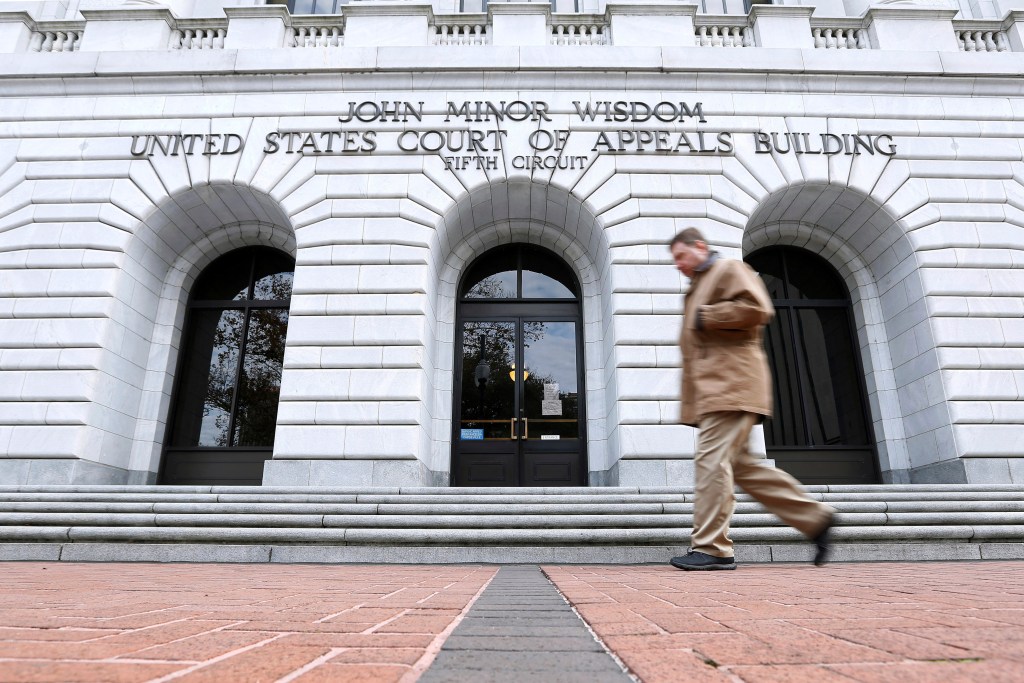Court won’t stop white lawmakers’ effort to create a court in Jackson, MS, which has mostly Black residents
Attorneys for the NAACP and other civil rights organizations had sued on behalf of several Jackson residents, saying the new court undermines democracy because local voters or local elected officials won’t choose its judge or prosecutors.

JACKSON, Miss. (AP) — A federal appeals court has denied a legal effort to stop Mississippi officials from creating a state-run court in part of the majority-Black capital city of Jackson, over objections from the NAACP.
In a Thursday ruling, three judges on the 5th U.S. Circuit Court of Appeals in New Orleans denied the NAACP’s motions for an injunction pending an appeal and vacated an administrative stay that had temporarily blocked state officials from creating the court.
The panel’s unanimous decision means state officials can begin setting up the Capitol Complex Improvement District Court, which will have a judge appointed by the state Supreme Court chief justice and prosecutors appointed by the state attorney general — officials who are white and conservative. A state law approved by the Republican-controlled Mississippi Legislature created the court; Jackson is governed by Democrats.

The 5th Circuit’s decision said the NAACP’s argument did not meet the burden for an appeal.
“We begin and end with the first factor: likelihood of success on the merits,” the panel wrote. “In sum, plaintiffs fail to plead a cognizable injury-in-fact and thus lack standing to assert their claims. Without standing, they cannot obtain an injunction.”
Attorneys for the NAACP and other civil rights organizations had sued on behalf of several Jackson residents, saying the new court undermines democracy because local voters or local elected officials won’t choose its judge or prosecutors.
The panel said the argument that the state law would take away power from local officials “has no basis in fact” because the legislation creates a new court, “staffed with a newly appointed judge and newly appointed prosecutors.”
In a statement following the ruling, the NAACP said its legal fight would continue.
“The NAACP is profoundly disappointed by today’s ruling,” said Janette McCarthy Wallace, general counsel for the NAACP. “Despite any obstacles we may face, the fight continues. Our case will proceed, with more briefing and arguments to come. The NAACP remains committed to upholding democracy and putting power back in the hands of Jackson residents.”
Recommended Stories
The NAACP did not immediately explain the legal strategy they would use to keep the case alive.
Attorney General Lynn Fitch’s office applauded the ruling and said the court would benefit the local community.
“The people of Jackson deserve a safer community and this office stands ready to help the people of Jackson get access to the prompt adjudication of justice that this law makes possible,” chief of staff Michelle Williams said.
The state law creating the new court also expands the patrol territory for Capitol Police. The state-run police department previously patrolled near state government buildings in downtown Jackson, but the new law added other parts of the city, including more affluent residential and shopping areas.
Before the 5th Circuit took up the appellate motions, U.S. District Judge Henry Wingate had already dismissed requests to block the new court. Legal arguments in the case touched on racial discrimination, public safety and democracy.
Never miss a beat: Get our daily stories straight to your inbox with theGrio’s newsletter.








